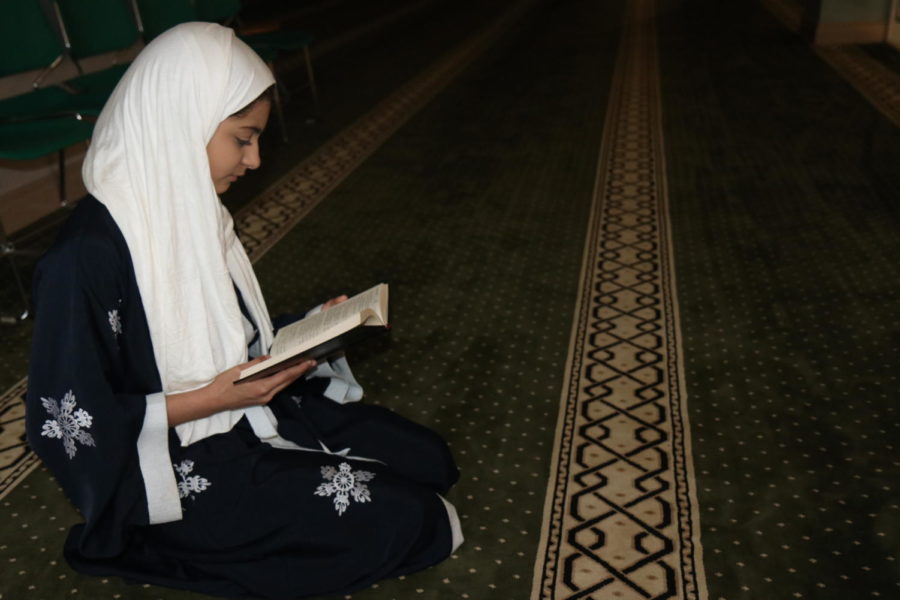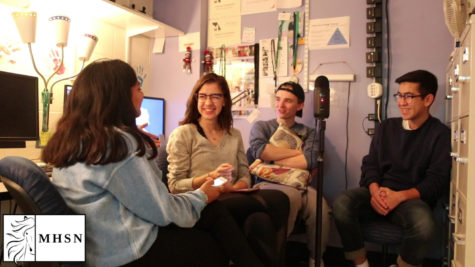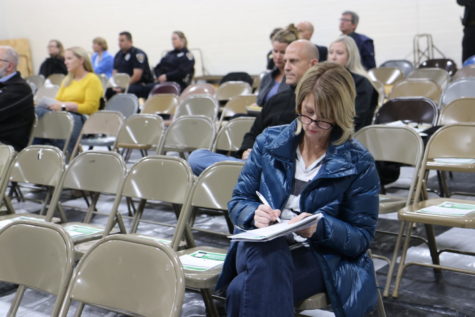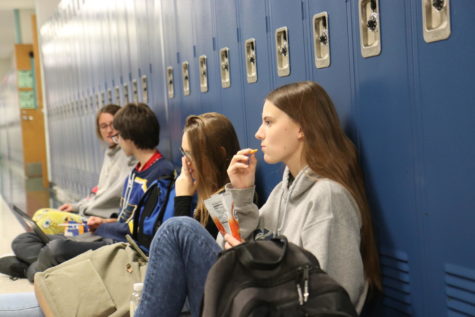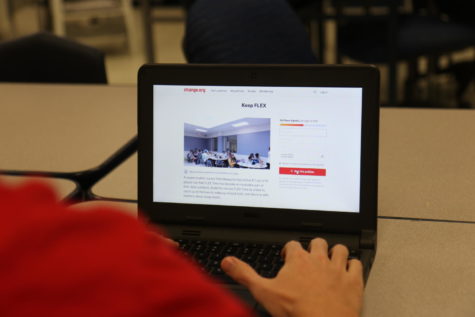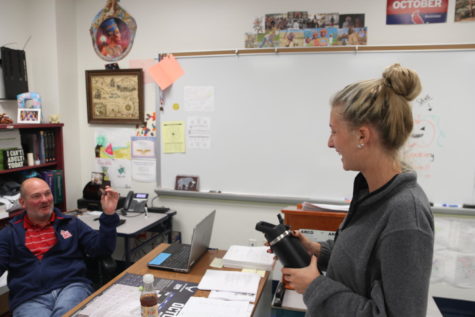Students Take Finals During Ramadan
Media by Marta Mieze
Lana Megdad, sophomore, reads the Quran at the Dar Ul-Islam mosque.
Amirah Yossef, senior, started fasting during Ramadan when she was in third grade. Although her parents never forced it on her, she was eager to participate in such an important part of her religion and be more like her older sisters.
At first, she did not fast for the entire month, but just for half of a day or a day. However, soon she started fasting for the whole 30 days.
“Every year it is life changing,” Yossef said. “It really teaches me not to take things for granted, not just food but everything I’m given.”
This year Muslim students will be taking finals during Ramadan, which starts on May 15.
Yossef said she is glad she is a senior this year because she can exempt most of her finals, making it a lot easier to fast as well as to test. However, looking back at other years, she remembers how tough it is.
“It is stressful and it’s hard,” Yossef said. “You need to eat for your brain to work.”
The hardest part of having finals during Ramadan, Yossef said, is having to wake up early, about 4 a.m., and then wake up again only two hours later to go to school and take finals.
“You are either tired, hungry or thirsty, and you can’t do anything about it,” Yossef said.
Imam Dr. Sheikh Ali Bagegni works at the Northwest Islamic Center and said that Ramadan is all about feeling closer to God and spending more time praying individually and also as a community. Fasting includes no food, drink or intimate relations from dawn to dusk.
“If you look at it from a religious aspect, you don’t think about food, you don’t think about water,” Dr. Bagegni said. “We look at it as an act of worship.”
Even though there are a few exceptions to fasting, including the sick, pregnant, those traveling and mothers who are breastfeeding, Dr. Bagegni said those who are unable to fast during Ramadan have to fast at another time to make up for it. While finals are a stressful time, Dr. Bagegni said it is not reason enough for students to break their fast.
“I don’t think it will affect the results of the exams,” Imam Dr. Bagegni said.
He also said many people choose to fast even outside of Ramadan. Dr. Bagegni said fasting is much like exercising: while it strains and tires you, it also makes you stronger.
Ramadan not only benefits individuals who fast but also the whole society, Dr. Bagegni said.
“During the month of Ramadan, people give more,” Dr. Bagegni said. “They give to charities, the needy and to the poor.”
Dr. Bagegni hosts a dinner every night during Ramadan making it easier for students who are busy studying for exams. He also said he has seen many non-Muslims try fasting for a day or a few.
Professor Kathleen Gorman teaches Psychology at the University of Rhode Island said younger children are much more affected by fasting while older teens and adults will not be affected as much due to their ability to adapt quicker.
She said Ramadan is not as much about the lack of food than a change in a routine or a schedule, lowering the effects it may have on students taking tests.
“If students are going to school without having eaten for a long period of time, like sundown the night before, then that would likely influence certain cognitive skill sets, [such as] alertness, reaction time, memory,” Professor Gorman said.
However, she said she was not aware of any studies specifically done to prove her ideas.
If students would have to go to school for an entire month while fasting, Professor Gorman said, the effects would be far more serious.
“I think that students themselves would report greater distraction, sleepiness and poorer attention than when they are satiated,” Professor Gorman said.
Professor Gorman said a big part of the effects of fasting is its connection to religion.
“I believe that an individual’s choice and understanding and belief system can greatly influence the potential effects,” Professor Gorman said. “Those who are committed to fasting for religious or spiritual reasons would experience fewer negative outcomes than individuals who are not eating due to lack of food, opportunity or resources.”
Your donation will support the student journalists of Marquette High School. Your contribution will allow us to purchase equipment and cover our annual website hosting costs. You may become a PATRON by making a donation at one of these levels: White/$30, Green/$50, Blue/$100. Patron names will be published in the print newsmagazine, on the website and once per quarter on our social media accounts.

Marta Mieze, senior, is the Co-Editor-in-Chief for the Messenger and the Script Editor for MHSNews. She has been on the Messenger staff since 2017 and...



